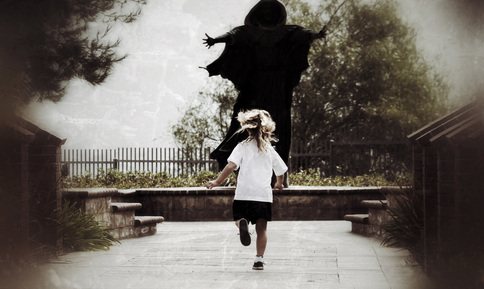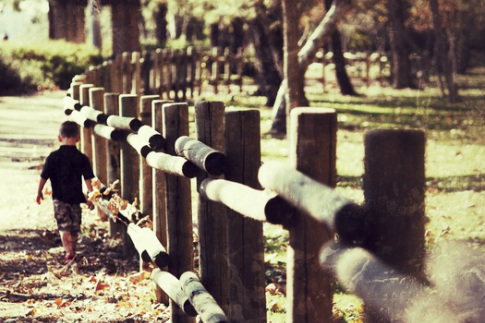
Counter Conditioning Codependence In Children And In Teens.
The controller child has been programmed to abandon themselves and rescue and enable the dependent role. The dependent child has been programmed to abandon themselves and be needy, broken and entitled, and needs a controller to rescue and enable them. The two codependent roles magnetically attract, creating a powerful revolving door pattern that I have named THE ADDICT'S LOOP. Inside the addict's loop, each codependent role unconsciously seeks a connection to feel secure, accepted, received and loved, but always end up abandoned, heartbroken, resentful and devastated.
A child that has inherited codependence can live in a secret, dishonest world. The child learns to perform their codependent role(s) and can make them seem natural and positive personality traits. The dependent child will falsely perform and people please, being seen as the child everyone likes and gets along with. The controller will dishonestly perform and become the "can do kid", straight A student, football quarterback and high achiever. Both personality traits can be very positive, if the child does not unconsciously and dishonestly perform them to be accepted and loved. Once the child's codependent role(s) become charged or validated by their family and social environment, the codependent role(s) can become firmly etched in the child’s behavior and future relationships.
Since codependence is a powerful blind spot inside the family system, strong evidence of a child's codependent behavior can be witnessed in their relationships with their surrounding friendships. A codependent child controller who is the high achiever and “can do kid” can be over-controlling, bossy, highly critical and mean spirited toward their dependent friends. The child-controller may show very little respect or awareness of boundaries and treat their dependent friend like a doormat. The victim of such behavior (the dependent friend) will usually not complain because they have learned to dishonestly “people please” in their own family system. The dependent friend will allow their child-controller friend to make decisions for them and boss them around. The dependent may end up being the scapegoat and get into trouble by following the controller’s orders and demands. This dynamic can also play out between brothers, sisters and other family members and relatives.
The controller child has been programmed to abandon themselves and rescue and enable the dependent role. The dependent child has been programmed to abandon themselves and be needy, broken and entitled, and needs a controller to rescue and enable them. The two codependent roles magnetically attract, creating a powerful revolving door pattern that I have named THE ADDICT'S LOOP. Inside the addict's loop, each codependent role unconsciously seeks a connection to feel secure, accepted, received and loved, but always end up abandoned, heartbroken, resentful and devastated.
A child that has inherited codependence can live in a secret, dishonest world. The child learns to perform their codependent role(s) and can make them seem natural and positive personality traits. The dependent child will falsely perform and people please, being seen as the child everyone likes and gets along with. The controller will dishonestly perform and become the "can do kid", straight A student, football quarterback and high achiever. Both personality traits can be very positive, if the child does not unconsciously and dishonestly perform them to be accepted and loved. Once the child's codependent role(s) become charged or validated by their family and social environment, the codependent role(s) can become firmly etched in the child’s behavior and future relationships.
Since codependence is a powerful blind spot inside the family system, strong evidence of a child's codependent behavior can be witnessed in their relationships with their surrounding friendships. A codependent child controller who is the high achiever and “can do kid” can be over-controlling, bossy, highly critical and mean spirited toward their dependent friends. The child-controller may show very little respect or awareness of boundaries and treat their dependent friend like a doormat. The victim of such behavior (the dependent friend) will usually not complain because they have learned to dishonestly “people please” in their own family system. The dependent friend will allow their child-controller friend to make decisions for them and boss them around. The dependent may end up being the scapegoat and get into trouble by following the controller’s orders and demands. This dynamic can also play out between brothers, sisters and other family members and relatives.

A child that is controlling and bossy with their friends and also becomes a needy, entitled dependent with other controllers or a controller love interest, may be a rotator and show early signs of substance abuse that may progress into addiction. It is important for the parent or the child's significant role models to counter condition their own codependent role(s), so they can begin to
counter condition any signs of either the controller or dependent roles in their children. More importantly, it is very important to watch for any signs of rotation between the two codependent roles. It is my strong belief that if the parents counter condition the rotating behavior of the two
codependent roles, they might be able to raise the bottom on their child’s future addiction. In other words, we can't stop addiction but may be able to counter condition it's progressive pattern.
Signs of the addict's loop in childhood behavior can be obsessive-compulsive television, video games, overeating, sugar, food, etc. Children will show signs of obsessive-compulsive thinking and behavior in their needs, desires and wants. An obsessive desire for an object and then a quick use, euphoric high/fix, burnout and discard pattern may develop with people, places and things. Over time, the child learns to abandon and condemn their authentic self, creating a split from their root honesty, the internal message being "I don't count, I'm stupid, I'm defective and wrong". The more a child condemns their authentic self, the more they rely on their codependent role(s) to survive and feel received and loved in their surrounding relationships. The tragedy is, over years of learned behavior, both codependents can believe their destructive codependent role is their authentic self. It is our responsibility to uncover our own unconscious, destructive codependent roles, counter condition them, and at the same time counter condition our child's codependence so they are experiencing and navigating their life from their deep root honesty. Teens can also do the nine-step counter conditioning process and begin to separate themselves from their inherited codependent role(s).
Honoring our personal truth and honesty will greatly conflict with the codependent role(s). The dependent is programmed and conditioned to fear confrontation because they don't want to be unlikable or a problem. The controller unconsciously fears abandonment if they do not control, rescue and fix the dependent. Both
codependent roles can be counter conditioned over time, but this will take the family’s unity, awareness, courage and patience. When we refuse to perform our dishonest codependent role(s), the family, partners, friends and employment relationships may become disrespectful, enraged, and abandon us. Everything must be risked.
counter condition any signs of either the controller or dependent roles in their children. More importantly, it is very important to watch for any signs of rotation between the two codependent roles. It is my strong belief that if the parents counter condition the rotating behavior of the two
codependent roles, they might be able to raise the bottom on their child’s future addiction. In other words, we can't stop addiction but may be able to counter condition it's progressive pattern.
Signs of the addict's loop in childhood behavior can be obsessive-compulsive television, video games, overeating, sugar, food, etc. Children will show signs of obsessive-compulsive thinking and behavior in their needs, desires and wants. An obsessive desire for an object and then a quick use, euphoric high/fix, burnout and discard pattern may develop with people, places and things. Over time, the child learns to abandon and condemn their authentic self, creating a split from their root honesty, the internal message being "I don't count, I'm stupid, I'm defective and wrong". The more a child condemns their authentic self, the more they rely on their codependent role(s) to survive and feel received and loved in their surrounding relationships. The tragedy is, over years of learned behavior, both codependents can believe their destructive codependent role is their authentic self. It is our responsibility to uncover our own unconscious, destructive codependent roles, counter condition them, and at the same time counter condition our child's codependence so they are experiencing and navigating their life from their deep root honesty. Teens can also do the nine-step counter conditioning process and begin to separate themselves from their inherited codependent role(s).
Honoring our personal truth and honesty will greatly conflict with the codependent role(s). The dependent is programmed and conditioned to fear confrontation because they don't want to be unlikable or a problem. The controller unconsciously fears abandonment if they do not control, rescue and fix the dependent. Both
codependent roles can be counter conditioned over time, but this will take the family’s unity, awareness, courage and patience. When we refuse to perform our dishonest codependent role(s), the family, partners, friends and employment relationships may become disrespectful, enraged, and abandon us. Everything must be risked.

The goal is to protect and honor our deep truth and root honesty at all costs. This is the opposite of what unconscious codependence demands from us. People abandoning us can be a manipulation because they can’t engage, control and satisfy the hypnotic and destructive controller-dependent dance. If our intimate relationships, family and friends unconsciously demand our false codependent performances, the relationships must be evaluated and adjusted. When our awareness and actions become stronger than our unconscious gravitating codependent role(s), the paradigm shift from codependence to our authentic self will begin to self-actualize and create a deeper connection with our relationships, life and spiritual connection.
